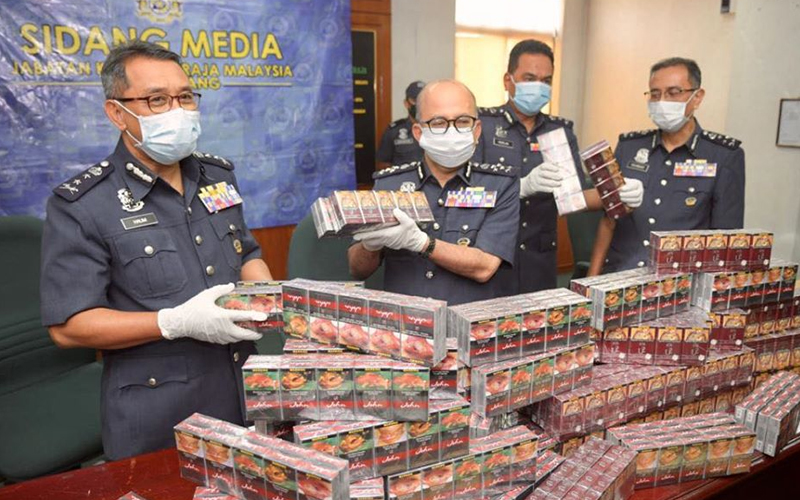
PETALING JAYA: The prevalence of corruption and weak enforcement at borders and logistics hubs remain challenges hindering trade activity in Malaysia and Southeast Asia, a US-based think tank said.
Philip Thompson of Tholos Foundation said criminal syndicates take advantage of corruption and weak enforcement to grow their enterprises.
“Malaysia has been implicated as a source for illicit trade in everything from cigarettes to palm oil, forestry products, wildlife trade and more,” he told FMT.
It was previously reported that the government lost more than RM15 billion in revenue between 2018 and 2020 from cigarette smuggling.
According to the Illicit Cigarettes Study by analytics firm Nielsen, illicit cigarettes accounted for 56.6% of cigarettes sold in the country last year.
Meanwhile, the customs department seized wildlife-related contraband valued at about RM73.4 million last year.
Thompson said the government could implement a stricter trade enforcement regime and finalise trade negotiations with partners on joint enforcement or information sharing and coordination to curb illegal trade activities.
He said this would help improve Malaysia’s trade facilitation.
Moving forward, he said, Malaysia has the option to either continue liberalising its approach to global trade or emulate regional neighbours in implementing digital trade barriers and populist industrial strategies.
Should Malaysia choose to continue liberalising its approach to trade, he said, several reforms to service restrictions are required to demonstrate that the country is open to foreign businesses competing in key sectors such as banking and telecommunications.
The government should also allow a variety of different professional services, such as audiovisual services, to operate in the country to improve its Trade Barrier Index score.
Malaysia ranked 53rd out of 90 countries in the Trade Barrier Index 2021, and ranked 4th out of 14 countries in the region.
Thompson also offered a word of caution to Malaysia and other countries negotiating with the US on the Indo-Pacific Economic Framework.
The US might be offering many incentives during negotiations but there is nothing preventing it from eventually trying to restore production to its shores, he said.
“Any country negotiating with the US needs to spend extra time figuring out where the loopholes are and how the agreement will be enforced.”
The Trade Barrier Index 2023 will be launched on May 10 at the Innovation Summit Southeast Asia 2023, organised by the Center for Market Education. - FMT


No comments:
Post a Comment
Note: Only a member of this blog may post a comment.